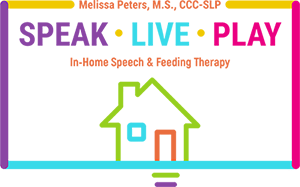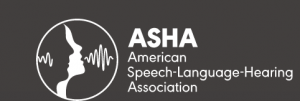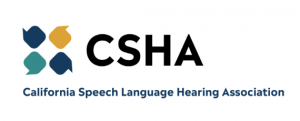In-Home Speech Therapy
Speech Therapy: What’s it all About?
When we talk about speech therapy, we’re talking about a class of medical interventions whose aim is to help patients improve their speaking ability and their capacity to express themselves in their language, with verbal and non-verbal speech types being included.
Speech-language pathologists are commonly referred to as speech therapists. These professionals will take on patients of all ages suffering from a wide variety of impediments and conditions that have an effect on their speaking abilities or swallowing mechanisms.
The speech therapist’s first step will usually be to carry out an evaluation of their patient in order to determine whether the issue might be rooted in the patient’s language and then formulate an appropriate, personalized treatment schedule to effectively rectify the problem.
The importance of speech therapy cannot be underrated. Human beings are social creatures, and the ability to communicate effectively with those around you is a crucial aspect of social living. An inability to communicate your problems or needs might leave you without a means of getting assistance in emergency situations. Moreover, undergoing speech therapy can greatly improve a patient’s quality of life, give them a boost in confidence, and improve their general well-being and mental health.
Where elderly patients are involved, in-home speech therapy might be more convenient to help address the various potential speech difficulties that often arise as a result of advancing age. Over time, our larynx muscles naturally lose their strength and our vocal cords become less elastic, and these factors may lead to swallowing and speaking difficulties.
Stroke victims are very often in need of in-home speech therapy services. Seeking these services immediately after an attack can go a long way in restoring the patient’s ability to speak normally once again. The added benefit of carrying out these procedures at home is that caregivers and family to the patient will be in a convenient position to provide further assistance to the patient by supporting them in further exercises and additional practice sessions between the professionally conducted therapy sessions. Those around the patient at home will be provided with resources and basic education to help them understand and effectively implement measures contributing to the patient’s progress.
What Are the Types of Speech Therapy Available?
There are multiple categories of speech therapy available to patients that are used to combat and rectify commonly occurring impediments to proper comprehension, speaking, and swallowing. These include:
Adult Speech Therapy
Professionally licensed speech therapists will be able to tackle speaking difficulties, swallowing and eating problems, communication obstacles, cognitive and memory rehab, and other related issues. A uniquely formulated treatment plan will be devised to ensure that the patient has the best odds for a full recovery. Some of the most common diagnoses calling for speech therapy services in adults and geriatrics might include dysphagia, stroke, Alzheimer’s, or dementia, as well as a variety of brain injuries.
Pediatric Speech Therapy
Children are very often in need of speech therapy to solve a host of issues including language-learning disorders, feeding difficulties, fluency impediments, and various communication issues. Pediatric speech therapists will be able to work in tandem with the physician overseeing the young patient’s treatment to develop a personalized treatment plan that will achieve the best possible results for them in the shortest time attainable. There are numerous diagnoses that might call for speech therapy services in children including:
- Cerebral Palsy
- Autism
- Attention Deficit Hyperactivity Disorder (ADHD)
- Speech Delay
- Developmental Delay
- Asperger’s Syndrome
- Cleft Palate
- Language-Learning Disabilities
- Neurological Disorders
- Traumatic Brain Injuries (TBI)
Home Speech Therapy Care
This is where professional speech therapists will visit the home of the patient in question to carry out the treatments developed to suit the patient’s needs, be they adult, pediatric, or geriatric.
Geriatric Speech Therapy
This is speech therapy carried out to help assist the aging among us so that they may gain full recovery from any of the speech, swallowing, eating, cognition, drinking, memory, or general communication problems that they may develop as a natural result of old age, accidents, or medical conditions.
Who Is Speech Therapy For?
As you might deduce from the information above, speech therapy is for everybody and anybody who experiences any of the problems or difficulties we’ve mentioned. This includes those who might be experiencing a loss or deterioration in their memory, comprehension and swallowing capabilities. Our aim is to provide the most comprehensive and effective personalized treatment programs, fully taking into consideration their condition, age, and needs, to help restore and improve their quality of life.
Why Choose Speak Live Play?
Losing the abilities of language, speech, swallowing, and memory can be very frightening, not to mention frustrating. This is perfectly natural and understandable. To help those who find themselves in these situations Speak Live Play will make use of the most comprehensive and demonstrably effective in-home speech therapy Los Angeles.
techniques available in order to restore the patient’s quality of life as far as possible.
Working out of Providence St. John’s Health Center, Melissa Peters, M.S., CCC-SLP will work closely with patients and primary healthcare providers to formulate a customized treatment schedule suitable to the patient according to their particular needs. This is how effective speech therapy solutions are most likely to be realized. You will receive courteous, professional, and highly effective specialized therapy solutions for all communication and cognition-related conditions including those that affect oral expression, auditory comprehension, reading comprehension, swallowing, speech characteristics, written expression, problem-solving, and memory, and more. Call us today at 424-279-8379.
The Hands That Will Care
When it comes to all things medical, it’s a good idea to know a little bit, if not a lot, about the person you’ll be trusting your care or that of a loved one to. Speech therapists are not all created equal, and so here’s a brief introduction and professional bio on Melissa Peters M.S., CCC-SLP.
She undertook her undergraduate studies at George Washington University, where she graduated with a Bachelor of Science degree in Speech-Language Pathology. For her Master’s, she enrolled at the Molloy College to be found in Rockville Centre, New York.
A broad clinical background establishes Melissa as a highly experienced professional in her field, with extensive practice in the treatment of patients both young and old in school settings as well as in private practice.
In these settings, she honed her foundational skill-set in the evaluation and treatment of young patients battling language, speech, feeding, and literacy disorders. Her particular areas of expertise include pediatric cases presenting with complex neurological and medical diagnoses such as Turner Syndrome, Down Syndrome, Nemaline Myopathy, Angelman Syndrome, Fragile X Syndrome, William’s Syndrome, and childhood multiple sclerosis. She also has a wealth of experience in tackling infant feeding disorders, all of which she acquired in the outpatient setting and the NICU.
The experience she has in the medical setting includes the identification and treatment of swallowing and feeding disorders. Melissa has worked with mature adult patients with post-stroke infirmities, tracheostomy, TBI, as well as acquired neurological presentations. She has developed a proficiency in actively completing instrumental examinations that go towards establishing a diagnosis of dysphagia such as Fiberoptic Endoscopic Evaluations of Swallowing and Modified Barium Swallow Studies.
Her personal philosophy towards therapy is an individualized, evidence-based practice that is geared towards helping her patients, young and old, to attain their optimal nutritional needs and fullest communicative capabilities. The passion she possesses for her profession is clearly evident in her love and enthusiasm when it comes to figuring out ways to make her therapy application effective, enjoyable, and functional.
Aside from her basic training and qualifications, Melissa has invested copious amounts of time and energy towards training additional experience and skills. Here’s a glance at some of the more prominent training situations and professional experiences she has under her belt:
- Sara Rosenfeld-Johnson’s Talk Tools Therapy
- Catherine Shaker’s NICU Swallowing and Feeding
- DIR-Floortime Approach
- Modified Barium Swallow
- Passy Muir Valve/Tracheostomy Training
- Michelle Garcia Winner’s Social Thinking Program
Why In-Home Speech Therapy Vs. Typical Speech Therapy
If you’re wondering how you can improve your child’s speech and language skills at home, you’ve come to the right place! If you suspect that your child has a speech or language delay, the first thing you should do is contact a speech-language pathologist (SLP) like Melissa in your area.
Saving & Getting Quality Time
Why choose in-home speech or dysphagia therapy versus going to a physical location? In my professional experience, in-home speech therapy offers a unique opportunity to advance clients (both adults and children) ability to meet their speech, language, and dysphagia goals. Parents and caregivers spend hours driving their loved ones from appointment to appointment, and in Los Angeles, that can take, quite possibly, hours. In-Home speech and feeding therapy offers a chance for parents and caregivers to be actively involved in their child’s or loved one’s speech, language, and feeding therapy. Family involvement is crucial to a client’s success in their treatment plan. In-Home therapy makes it easier for parents to become active participants in their child’s treatment plan. Research indicates that parental involvement is effective (when combined with traditional 1:1 speech therapy sessions) in helping a child meet their speech, language, and feeding goals.
Comfortable and Easier Learning Home Environment
When a client is in their natural environment, it offers a plethora of opportunities to facilitate carryover of speech, language, and feeding skills. Many clients feel most comfortable at home. Therapy offices can be sterile and overstimulating for many of the populations our practice serves. In my experience, In-Home therapy often allows for the rapid development of rapport between the child and their therapist. A client is much more inclined to engage and participate in their home environment. In our extensive training, speech pathologists are reminded to ensure therapy is functional. A home-based therapy environment allows for real-life situations and functional use of communication skills that we are targeting in therapy. In the home, therapy allows for active parent involvement, increased client participation, and functional use of skills taught during therapy sessions.
Not Dealing With LA Traffic
In order to know how you can do speech therapy at home, it is important to understand how a speech-language pathologist would work with your child. You can start the evaluation process by clicking on the button below. Why deal with LA traffic or put your child in a foreign and uncomfortable environment, while they are trying to learn how to speak properly. I will come to you, in the comfort of your home to start your child’s journey to learn how to speaking properly. Just click on “Schedule Your Appointment or call 424-279-8379“.




